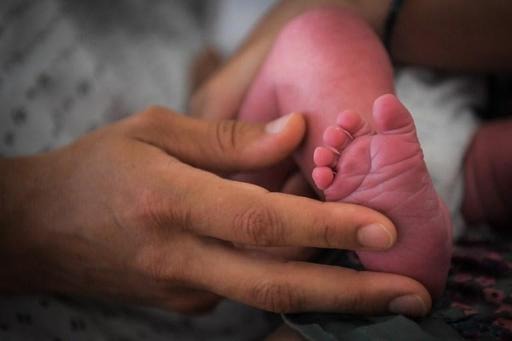The mother of the “test-tube” baby born with three parents has heralded “an important scientific breakthrough”. The baby was born in Greece on Tuesday. The mother said the new technology had “given her the greatest chance of her life” after “four failed IVF attempts."
32-year-old Matina Karavokyri from Greece explained that this method of assisted conception involved her genetic material being implanted into a donor ovule, which had had its own genetic material removed.
“In fact, it’s a bit like we put my ovule in a buggy so it could travel to the uterus”, she said during an interview with the Greek press agency ANA.
Matina Karavokyri gave birth to her son at a clinic in the outskirts of Athens on Tuesday. He weighed 2.960kg.
This technology is still controversial. The Greek –Spanish team behind the procedure, headed by Greek embryologist Panagiotis Psathas, transferred genetic material containing the mother’s chromosomes into a donor ovule (from which the genetic material had been emptied).
The fertilisation was done in vitro using the father’s sperm and the embryo was then placed in the mother’s uterus. According to someone close to the family, the mother is infertile due to “issues with her endometrium”.
“There is nothing from a third person in him, he’s 100% our child”, the young woman said. She did add that she was “grateful” to the donor.
“I didn’t think twice when they offered me this new method”, she said. “It was the greatest chance of my life. My dream has come true," she beamed.
The method had already been used in Mexico in 2016, to avoid transmission of a maternal hereditary illness.
“For the first time in history, the inalienable right to become a mother using your own genetic material has become a reality for every single woman," Dr Psathas said on Thursday.
Dr Psathas’ Spanish teammate, Dr Nuno Costa-Borges, spoke of a “revolution in assisted reproduction”. Dr Nuno-Borges is the co-founder of the Embryotools centre in Spain. He celebrated this “exceptional result, which will allow innumerable women to realise their dream of becoming a mother using their own genetic material."
But there are some ethical questions. “The risks associated with this technique are not entirely known, but are considered acceptable when treating mitochondrial diseases. But not for this situation," said Tim Child, a professor at Oxford University.
The Brussels Times

